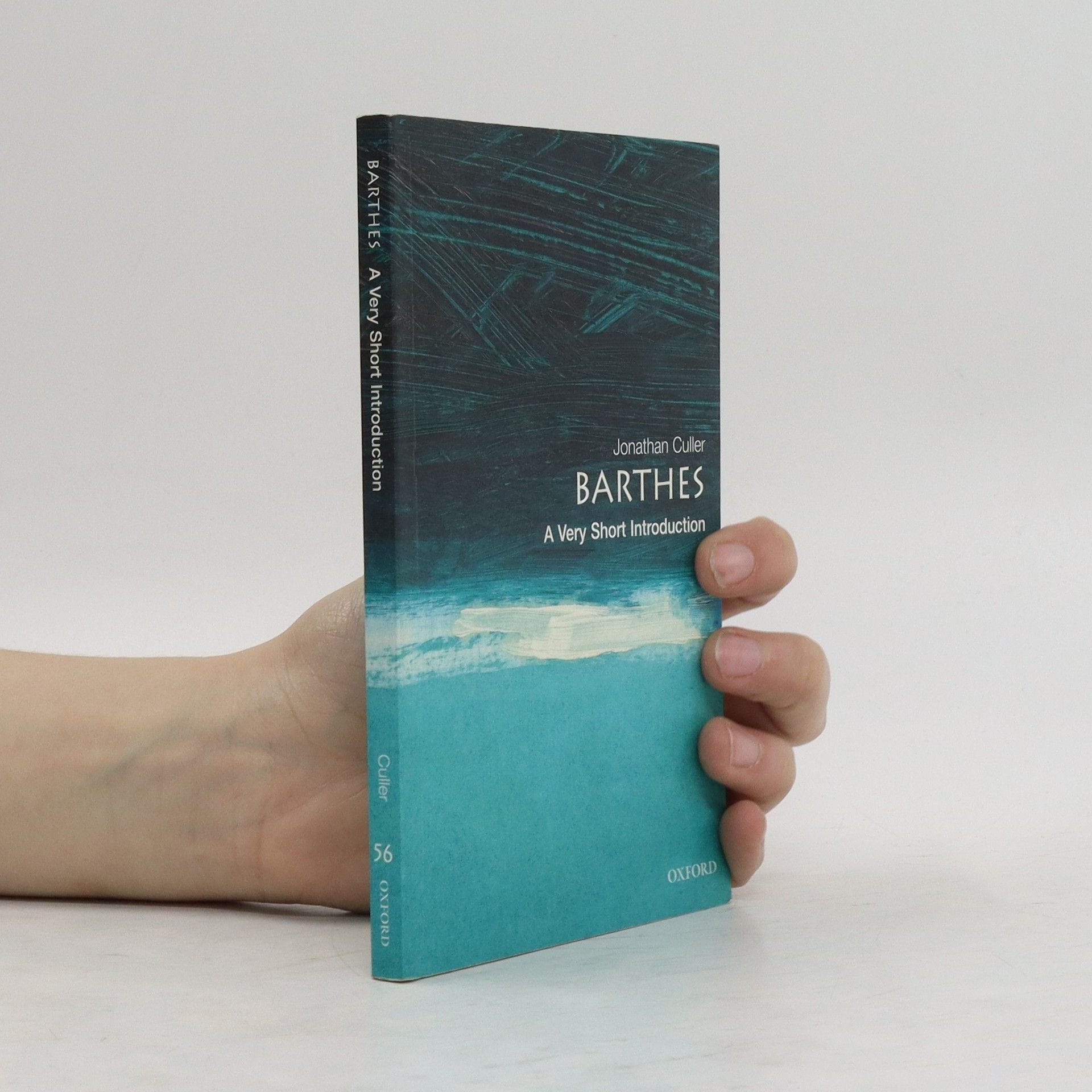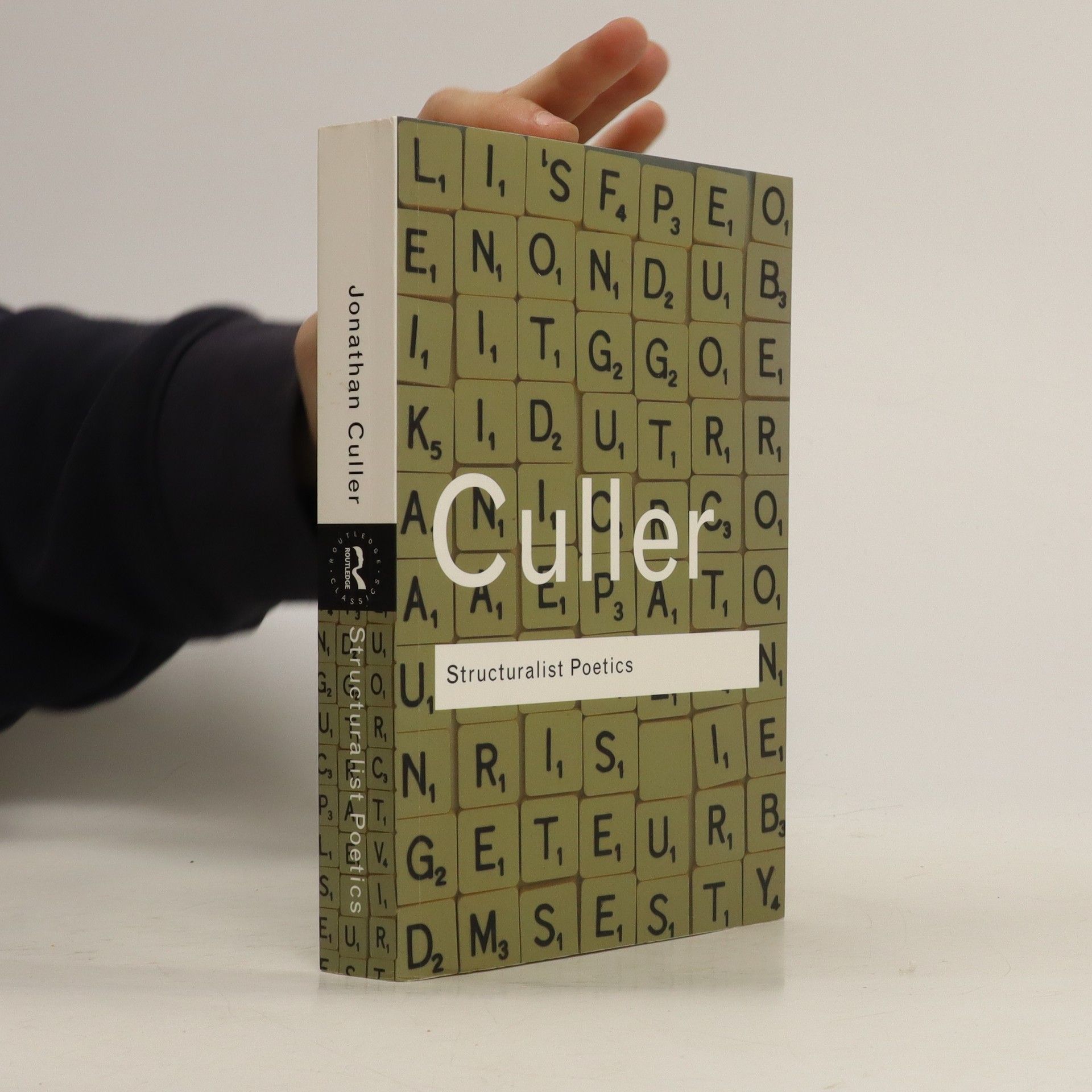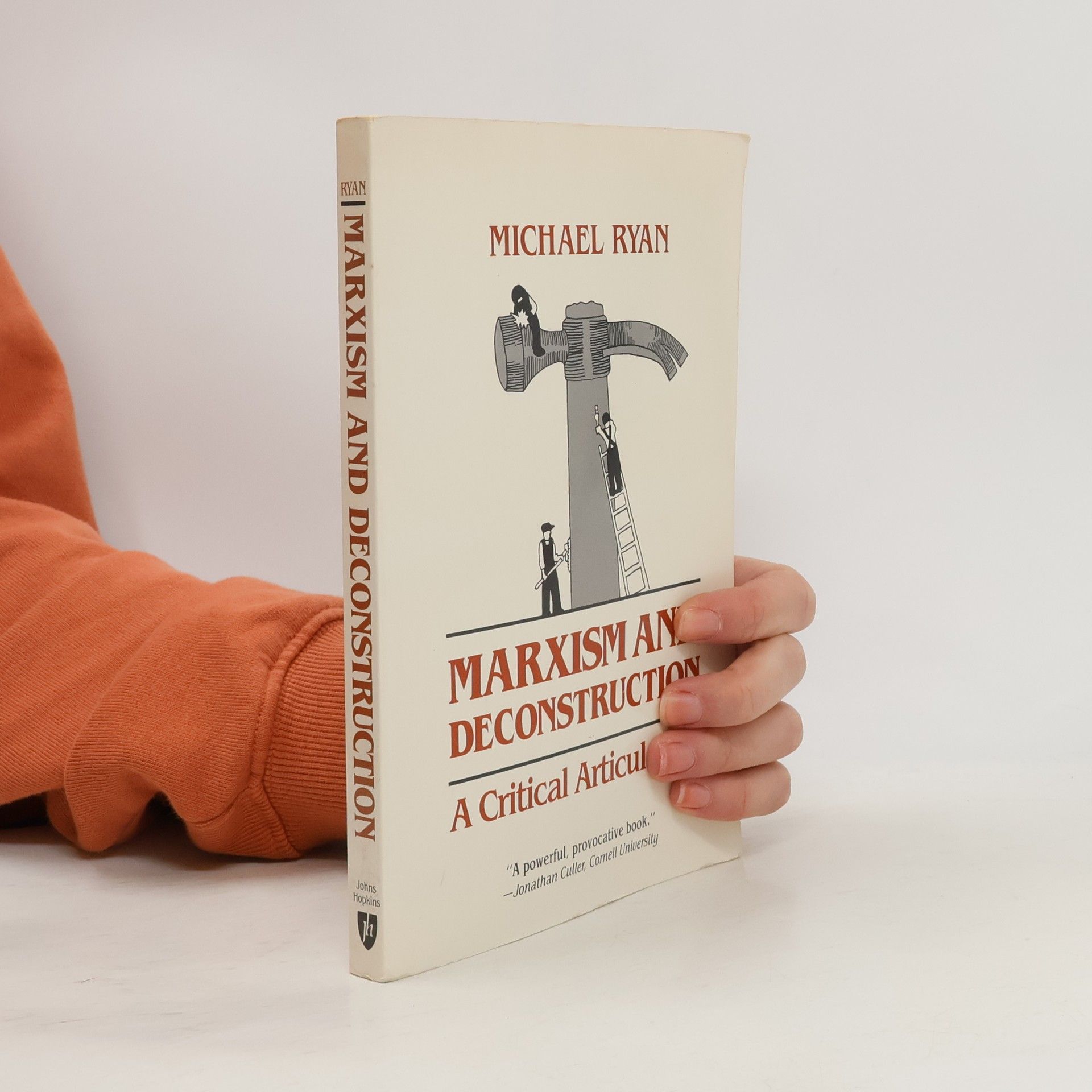Dekonstruktion
Derrida und die poststrukturalistische Literaturtheorie
Jonathan Culler ist ein Literaturtheoretiker, der für seine Erforschung der strukturalistischen Linguistik und ihres Einflusses auf die Literaturkritik bekannt ist. Seine Arbeit zeichnet sich durch eine tiefgreifende Analyse aus, wie Sprachstrukturen unser Verständnis von Literatur und Kultur prägen. Culler befasst sich mit den grundlegenden Fragen der Literaturtheorie und ihren Verbindungen zu breiteren interdisziplinären Feldern. Sein Ansatz bietet den Lesern neue Perspektiven auf Bedeutung und Praxis der literarischen Interpretation.







Derrida und die poststrukturalistische Literaturtheorie
Der amerikanische Literaturwissenschaftler Jonathan Culler legt hier eine geradezu vergnügliche Einführung in die Literaturtheorie vor: Was ist und will Theorie? Was ist überhaupt ein Text? Was ist ein Autor? Was ist Rhetorik? Was unterscheidet Lyrik von Prosa? Ebenso werden verschiedene Theorie-Strömungen vorgestellt: Von der Hermeneutik und anderen klassischen Richtungen über Dekonstruktion, Gender- und Queer-Studies und New Historicism bis hin zur postkolonialen Literaturbetrachtung.
"A powerful riposte, both to Marxists who revile deconstructionism for its supposed liberal-bourgeois quietism, and to those among the current deconstructors who seem to invite that charge."--Christopher Norris, Times Literary Supplement.
This widely acclaimed work remains an important and vital work of literary scholarship. Covering semiotics, reader response criticism, and the value of the apostrophe, this work provides a detailed analysis of literary criticism
Culler's most famous work, Structuralist Poetics has never been out of print since first publication in 1975, selling over 20,000 copies. It introduced a new way of studying literature by attempting to create a systematic account of the structure of literary works, rather than studying the meaning of the work. Culler's new preface answers some of the criticisms levelled at his approach and details how it is still as relevant today as when it was first published.
Roland Barthes was the leading figure of French Structuralism, the theoretical movement of the 1960s which revolutionized the study of literature and culture, as well as history and psychoanalysis. But Barthes was a man who disliked orthodoxies. This book surveys Barthes' work in prose.
This work explores the role of the literary in theory, with wide-ranging analysis of key concepts and disciplinary practices.
Přednášky významného italského myslitele Umberta Eca o podstatě interpretace a polemické příspěvky současných filozofů k těmto textům. Z obálky knihy: Text je nástroj, vynájdený na to, aby utvoril svojho modelového čitateľa. Opakujem: tento čitateľ nie je autorom „jedinej správnej“ domnienky. Text môže rátať aj s takým modelovým čitateľom, ktorý má právo pokúsiť sa o nekonečný počet domnienok. Empirický čitateľ je len aktérom, vyslovujúcim domnienky o povahe modelového čitateľa, ktorého postuluje text. Keďže zámerom textu je v podstate vytvárať modelového čitateľa, schopného vyslovovať o ňom domnienky, vynachádzavosť modelového čitateľa spočíva v nájdení modelového, teda nie empirického, autora, ktorý v konečnom dôsledku splýva so zámerom textu. Text je teda viac než len parametrom, použitým na zhodnotenie interpretácie, je objektom, ktorý vytvára interpretácia v procese kruhového úsilia o potvrdenie svojej právoplatnosti na základe toho, čo podáva ako svoj výsledok. Nehanbím sa priznať, že tak definujem starý a stále platný „hermeneutický kruh“.
Jonathan Culler (* 1944) patří k nejvýznamnějším literárním teoretikům a jeho Krátký úvod do literární teorie (česky 2002, 2015) se těší trvalé oblibě v USA i u nás. Teorie lyriky si klade za cíl přistoupit k oblasti lyrické poezie pružně a nedogmaticky, přitom ale s vědomím bohatých vnitřních vazeb tradice básnického psaní, poslechu a čtení, které se osvědčují v autorské i čtenářské zkušenosti, a tím ustavují jednotu žánru. Oproti hermeneutické otázce po smyslu básnického textu Culler zdůrazňuje to, o co báseň jazykově usiluje a čeho svou výpovědí dosahuje: v centru zájmu se tak ocitá například oslovování, chvála a hana či rytmus a rituál. Culler využívá teoretických podnětů, jež nachází například v díle G. W. F. Hegela, T. W. Adorna či fenomenologicky zaměřené K. Hamburgerové, ale současně svou úvahu vždy odvíjí od konkrétních příkladů a dbá na to, aby kniha mohla sloužit i jako učební úvod.
Předkládaný svazek tří studií amerického poststrukturalisty, představitele tzv. Yaleské školy, se zabývá různými naratologickými otázkami, dokumentuje proměny v této oblasti. Studie představují zkoumání teorie fikce, diskurs a diskursivní sílu narativu, ilustrováno na Oidipově příběhu. Autorův zájem o diskurs souvisí se současným literárněteoretickým a filozofickým uvažováním v rámci poststrukturální a postmoderní kritiky tzv. velkých vyprávění. Culler se ve svých studiích opírá o klasické přístupy narativní teorie pro analýzu textů, zkoumá vztah mezi vypravěčem a jeho posluchači, viz studie „Vševědoucnost“. V Cullerově optice je věcí autorského záměru, co a kdy čtenáři sdělí, a je tedy zavádějící vycházet z apriorního vypravěčského vědomí. Studie jsou dokladem nepředpojatého a racionálního kritického přístupu. V českém literárním prostoru je autor znám dvakrát vydaným Krátkým úvodem do teorie literatury (2002, 2015). — Svazek obsahuje též komentář a bibliografii.